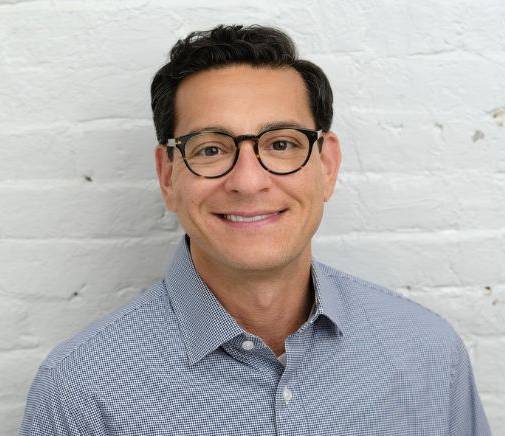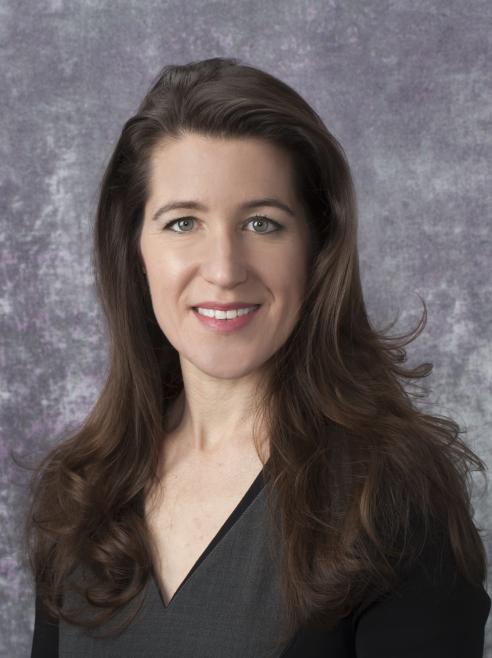People
Faculty
Director
 Briana Mezuk
Briana Mezuk
Briana Mezuk is the Director of the Michigan Integrative Well-Being and Inequality (MIWI) Training Program. She co-directs the Center for Epidemiology and Population Health (CSEPH), and is a Professor of Epidemiology at the University of Michigan School of Public Health. She is also a faculty affiliate with the Institute for Social Research (ISR) and is a mentor with the Michigan Center for Urban African American Aging Research (MCUAAAR), where she co-directs the Analysis Core. She holds a PhD in Mental Health from Johns Hopkins Bloomberg School of Public Health and her training is in psychiatric epidemiology. Her research focuses on investigating the intersections between mental and physical health, with a focus on depression and chronic medical conditions in mid-and late-life such as type 2 diabetes and frailty. A core feature of her research is the integration of conceptual and analytical approaches, methods, and models from social science and clinical disciplines with the aim of arriving at a more nuanced and comprehensive understanding of the ways in which mental and physical health interrelate. Dr. Mezuk has extensive experience conducting epidemiologic field research and analyzing large population-based data sets, as well as training junior investigators in public health, psychology, and related social sciences.
Co-Directors
 Richard Gonzalez
Richard Gonzalez
Dr. Rich Gonzalez is the Amos N Tversky Collegiate Professor of Psychology and Statistics. He is the Director of the Research Center for Group Dynamics at the Institute for Social Research, and is the Co-Director of the BioSocial Methods Collaborative. He is also a Professor of Integrative Systems and Design with the UM College of Engineering. Dr. Gonzalez studies judgment and decision making processes at both the basic and applied levels. His theoretical work includes formal models of decision making under risk and uncertainty. His applied work in decision making extends to eyewitness identification, medical decision making, consumer behavior, transportation decisions and sustainability. He also conducts mathematical modeling of group processes and develops statistical techniques for data analytic problems in psychology. He has developed statistical models for the analysis of dyadic data. Dr, Gonzalez has supervised 38 PhD dissertations, served on over 120 dissertation committees, mentored 16 post docs, and served on over 20 mentoring committees of assistant professors
 Darrell Hudson
Darrell Hudson
Dr. Darrell Hudson is an Associate Professor at the Brown School at Washington University in St. Louis. Dr. Hudson holds courtesy appointments with the Department of Psychiatry and the Department of Sociology and is a Faculty Scholar with the Institute for Public Health. Dr. Hudson’s career is dedicated to the elimination of racial/ethnic inequities in health. His research agenda centers on how social determinants of health, particularly racism, affect multiple health outcomes. Dr. Hudson is also striving to develop researchers and professionals who are both well trained and passionate about achieving health equity.
 Robert Joseph Taylor
Robert Joseph Taylor
Robert Joseph Taylor is the Sheila Feld Collegiate Professor and the Harold Johnson Endowed Chair of Social Work at the University of Michigan. He also is the Director of the Program for Research on Black Americans (PRBA) at the Institute for Social Research, and is a Co-Director of the Michigan Center for Urban African American Aging Research (MCUAAAR). He holds an MSW and a PhD in Sociology and Social Work from the University of Michigan. His research focuses on two major areas: African American support networks and African American religious participation. He is currently on the editorial board of Society and Mental Health, the Journal of Marriage and the Family, and the Journal of Race and Social Problems, and has served on the editorial boards of Journals of Gerontology: Social Sciences and Family Relations. A major aspect of Dr. Taylor's career has been the mentoring of doctoral students and junior faculty, most of whom have been African American both through MCUAAAR and PRBA. He has been involved with several federally-funded studies examining the role of religion in the lives of Black and White older adults.
Founding Co-Director, In Memoriam
James Jackson
James S. Jackson was the Daniel Katz Distinguished University Professor of Psychology, Professor of Afroamerican and African Studies, and Research Professor, Institute for Social Research (ISR), all at the University of Michigan. He held a PhD in Social Psychology from Wayne State University. His research centered on ethnic and racial influences on the social determinants of both physical and mental health across different population groups, with a special focus on adults and adolescents of black descent. He was the Director of the Michigan Center for Urban African American Aging Research (MCUAAAR) and the founder of the Program for Research on Black Americans (PRBA) at ISR. He served as the Director of ISR and the Center for Afroamerican and African Studies, and was the national president of the Association of Black Psychologists, the Society for the Psychological Study of Social Issues and the Consortium of Social Science Associations. Additionally, he led several large population-based studies of mental health in African American and Afro-Caribbean populations, including the National Survey of Black Americans and the National Survey of American Life. Dr. Jackson's work shaped health and aging research as we know it today.
Affiliated and External Faculty
 Jimi Adams
Jimi Adams
jimi adams is an Associate Professor of Health & Behavioral Science at the University of Colorado Denver. He holds a PhD in Sociology from the Ohio State University. Broadly, his research revolves around addressing how networks constrain or promote the diffusion of information and/or diseases through populations. Much of this work has focused on HIV/AIDS in "high risk" populations in the US and Sub-Saharan Africa. Recently, he has spent more time examining the integrative patterns and processes in problem-focused areas of science that draw from many academic disciplines (e.g., HIV/AIDS, demography, the environment). In addition, he has a primary interest in using social network theory to improve strategies used in the design and implementation of primary data collection projects. Past training/mentoring has focused primarily on social network analyses, data collection, and health disparities broadly.
 Allison Aiello
Allison Aiello
Allison Aiello is Professor of Epidemiology, Social Epidemiology Program Leader, Director of Graduate Studies, and Carolina Population Center Fellow, with the Department of Epidemiology, Gillings School of Global Public Health, University of North Carolina, Chapel Hill. Dr. Aiello’s research program examines how socioeconomic status influences a range of health outcomes, with a focus on infection, Alzheimer’s Disease (AD), and mental health. She has published over 200 peer reviewed journal articles on these topics. Her Google Scholar H-index is 60 and has over 11,500 citations to date (11/29/2019). Her study findings suggest that socioeconomic disadvantage perturbs the immune system via increased susceptibility to infection, thereby hastening the onset of immune related conditions, including AD and mental health conditions. Dr. Aiello has mentored 13 post-doctoral scholars/early stage faculty and 19 PhD mentees (13 have graduated and six in progress). Over the past five years, four of Dr. Aiello’s post-doctoral mentees/junior faculty have been funded on NIH K grants.
 Kristine J. Ajrouch
Kristine J. Ajrouch
Kristine J. Ajrouch, PhD is Director of the Michigan Center for Contextual Factors in Alzheimer’s Disease (MCCFAD), located at the University of Michigan. She is also Professor of Sociology at Eastern Michigan University. Her research has focused, for over twenty years, on Arab Americans beginning with ethnic identity formation among adolescent children of immigrants followed by the study of social relations, aging and health. Dr. Ajrouch is currently leading two research projects around Alzheimer’s disease (AD) in the Arab American community. The first, funded by the National Institute of Aging, aims to establish prevalence levels of AD among Arab Americans aged 65 and older in the metro Detroit area. The second, funded by the Michigan Health Endowment Fund, will adapt an AD caregiver intervention program to meet the needs of Arab American families. She has mentored junior investigators at various points in their career, partnering with them to advance and develop skills in their particular areas of interest.
 Marco Annoni
Marco Annoni
My research deals with bio-ethics and science. My main interests concern bioethics, moral philosophy, the ethics of clinical trials, research integrity, the ethics of the doctor-patient communication and placebo effects. Currently, I am a researcher in bioethics at the National Research Council (CNR), Coordinator of the Ethics Committee of Fondazione Umberto Veronesi, Editor-in-chief of the scientific journal The Future of Science and Ethics, and ethics consultant for the Human Technopole Foundation.
 Lisa Barnes
Lisa Barnes
Lisa L. Barnes, PhD is the Alla V. and Solomon Jesmer Professor of Gerontology and Geriatric Medicine in the department of Neurological Sciences at Rush University Medical Center, and a cognitive neuropsychologist in the Rush Alzheimer’s Disease Center. She also has a joint appointment in the department of Psychiatry, division of Behavioral Sciences. Dr. Barnes earned her B.A. from Clark Atlanta University and received her PhD from the University of Michigan in the biopsychology department. Her research focus is on racial disparities in chronic diseases of aging including Alzheimer’s Disease and HIV. She is the Principal Investigator of two community-based cohort studies of older African Americans, and the Director of the Rush Center of Excellence on Disparities in HIV and Aging. Dr. Barnes has been recognized for her contributions to minority aging and health disparities by many professional organizations and has received numerous awards including the Centennial Scholar Award by the Institute of Medicine of Chicago, and the Steve Whitman Research Award by Health and Medicine Policy Research. She was named a Leadership Institute for Women in Psychology Fellow in 2011 and completed the Hedwig van Amerigen Executive Leadership in Academic Medicine (ELAM) fellowship in 2018. She has published extensively on risk factors for cognitive decline and Alzheimer’s disease in older African Americans with close to 200 manuscripts to date.
 Fabrizio Benedetti
Fabrizio Benedetti
Fabrizio Benedetti has been working on placebo and nocebo effects for several years, including their relationship with the clinician-patient interaction. He has described many mechanisms of placebo and nocebo across different medical conditions and therapeutic interventions in pain, motor disorders, dementia, hypoxia. He is involved in several programs as a mentor and tutor, e.g. with medical and psychology students as well as doctors in residency.
 Mercedes Carnethon
Mercedes Carnethon
Dr. Carnethon is the Mary Harris Thompson Professor and Vice Chair of Preventive Medicine and Professor of Medicine (Pulmonology and Critical Care) at the Feinberg School of Medicine at Northwestern University. She is a cardiovascular disease epidemiologist whose research has focused broadly on cardiovascular disease, obesity, diabetes and lung health in the population subgroups defined by race/ethnicity, geography, socioeconomic status, gender and sexual orientation/gender identity. Dr. Carnethon and her team have examined how health behaviors and psychological health contribute to the onset and management of chronic diseases. She and her team have produced over 300 publications supported by funding from the National Institutes of Health and the American Heart Association. Dr. Carnethon is a leader in postdoctoral training and faculty development, having successfully mentored junior investigators who have subsequently earned their own grants and prestigious research awards. For her accomplishments in faculty development, she was named the Faculty Mentor of the Year in 2018 by the Medical Faculty Council at the Feinberg School of Medicine at Northwestern University.
 Christy Erving
Christy Erving
Dr. Christy L. Erving is an Associate Professor of Sociology at the University of Texas at Austin, faculty research associate in the Population Research Center, and faculty affiliate in the Center on Aging and Population Sciences. Dr. Erving holds a PhD in Sociology. Using theories, concepts, and perspectives from various disciplines, her program of research focuses on clarifying and explaining status distinctions in health. Her primary research areas explore how race, ethnicity, gender, and immigrant status intersect to produce health differentials; the Black–White mental health paradox; and how status (e.g., gender) shapes the relationship between psychological and physical health. Her most recent projects investigate the psychosocial determinants of Black women's health across the life course, spanning early adulthood through later life. Her work integrates sociological theoretical perspectives with insights from other disciplines to ascertain how Black women's gendered and racialized life experiences both negatively and positively influence psychological and physiological health.
 Jessica Faul
Jessica Faul
Dr. Jessica Faul is a Research Associate Professor in the Survey Research Center at the Institute for Social Research at the University of Michigan. She holds a PhD in Epidemiology. Dr. Faul’s scholarly interests are at the intersection of epidemiology, biodemography, and aging. She is currently collaborating on a grant to identify gene-by-environment interactions and their influence on later life cognitive decline and is co-leading a study to characterize disparities in Alzheimer’s disease risk through analysis of polygenic risk and other epidemiologic factors. She is a co-investigator on the Health and Retirement Study and Harmonized Cognitive Assessment Protocol and has led the development of a workshop to train social scientists on the use of genomic data.
 Stephanie Fitzpatrick
Stephanie Fitzpatrick
Stephanie Fitzpatrick is an Investigator with Kaiser Permanente Center for Health Research in Portland, OR. She holds a PhD in clinical psychology with a specialization in health psychology from the University of Miami. Her research focuses on embedding behavioral interventions for obesity and chronic disease management in primary care practices. She has expertise in development, implementation, and analysis of behavioral interventions, including the use of advanced statistical modeling including structural equation modeling and item response theory. Dr. Fitzpatrick was the principal investigator on a National Institute of Diabetes and Digestive and Kidney Disease (NIDDK)-funded R21 study that involved applying latent class analysis to data from two multi-site behavioral intervention trials (PREMIER and Weight Loss Maintenance) in order to identify individuals who successfully maintained health behavior changes for a year or more, and to establish demographic and baseline psychosocial predictors of behavior change maintenance. She is also co-principal investigator on a NIDDK-funded R01 to evaluate the implementation of the Diabetes Prevention Program at Kaiser Permanente Northwest. Dr. Fitzpatrick is also the principal investigator on a NIDDK-funded R34 to test the feasibility of a community health worker-led intervention to address diabetes self-management and unmet basic needs among racial/ethnic minority and low-income patients. She has extensive experience mentoring including nursing students, postdoctoral fellows, and early career investigators.
 Joseph Gallo
Joseph Gallo
Dr. Joseph J. Gallo MD MPH is a Professor at the Johns Hopkins University Bloomberg School of Public Health. His research concerns the form and presentation of depression in late life in community settings, particularly primary health care in the context of medical comorbidity. A major focus of his research concerns the form and course of depression among older adults. Based on clinical experience, he noted that depressed older persons in primary care settings often did not assent to sadness. A second focus area has involved mental health treatment in primary care settings including medical comorbidity. He is the PI for a long-term follow-up of PROSPECT (Prevention of Suicide in Primary Care Elderly – Collaborative Trial), a randomized trial of depression management in primary care practices. The follow-up studies have examined mortality as an outcome in the context of medical comorbidity. He teaches a course in the School of Public Health called “The Intersection of Physical and Mental Health.” A third research focus involves the use of mixed methods in health services research. Mixed methods can bridge the gap between evidence generated from interventions under “ideal” conditions and the application of evidence-based practices for diverse populations in various contexts. He is the Principal Investigator for a new Mixed Methods Research Training Program for the Health Sciences, bringing Scholars and mentors in mixed methods together to advance the research employing mixed methods in the health sciences.
 Tiffany Green
Tiffany Green
Dr. Tiffany Green is an Associate Professor in the Departments of Population Health Sciences and Obstetrics & Gynecology at the University of Wisconsin, Madison. She holds a PhD in Economics. Dr. Green completed two postdoctoral fellowships at the University of Wisconsin-Madison: the Robert Wood Johnson Health and Society Scholars Fellowship in population health, and the Health Disparities Research Scholars Program in health disparities. Dr. Green's mission is to understand the causes and consequences of racial/ethnic disparities in reproductive health. She is committed to training the next generation of researchers to become better critical thinkers, better scientists, and more informed, engaged citizens.
 Deborah Gross
Deborah Gross
Deborah Gross is the Leonard and Helen Stulman Professor in Mental Health and Psychiatric Nursing at the Johns Hopkins School of Nursing. She is also holds joint appointments in the Johns Hopkins School of Medicine Department of Psychiatry and Behavioral Sciences and the Bloomberg School of Public Health Department of Mental Health. She holds a DNSc from the Rush University College of Nursing. Dr. Gross' research focuses on young children growing up in poverty and designing scalable interventions for strengthening parenting and parent-child relationships in under resourced communities. She led the development of the Chicago Parent Program, an evidence-based parenting program that has been implemented in more than 20 states and the District of Columbia and reached more than 7600 parents. Dr. Gross has served on numerous NIH review panels and mentored more than 30 PhD students and post-doctoral fellows.
 Nao Hagiwara
Nao Hagiwara
Dr. Hagiwara is a leading researcher in the field of healthcare providers’ bias (i.e., prejudice and stereotyping) and racial disparities in healthcare and health. With training background in basic experimental social psychology, she grounds her applied disparities research in social psychology theories of stereotyping, prejudice, and discrimination. To date, she has obtained multiple NIH grants on provider implicit bias and published over 45 peer-reviewed journal articles and book chapters. Her most recent work investigates how healthcare providers’ implicit racial prejudice manifests in their communication behavior during patient-provider communication, particularly in racially discordant medical interactions. Dr. Hagiwara has been also active in mentoring student trainees (NSF GRFP, NIH F31) and junior investigators. She is the Associate Director of the Faculty Development Program, the Center for Cultural Experiences of Prevention at Virginia Commonwealth University.
 Rebecca Hasson
Rebecca Hasson
Rebecca Hasson, Ph.D., is an Associate Professor in the Schools of Kinesiology and Public Health and Director of the Childhood Disparities Research Laboratory at the University of Michigan in Ann Arbor. Dr. Hasson received her Doctoral degree from the Department of Kinesiology at the University of Massachusetts, Amherst. Dr. Hasson has developed a nationally recognized cross-disciplinary research program that takes an environmental, behavioral, and biological perspective to understand racial/ethnic disparities in the development of obesity and obesity-related health complications in children and adolescents. Throughout her academic career, Dr. Hasson has been extensively involved with the American College of Sports Medicine (ACSM) and American Public Health Association affiliate organizations. She serves on ACSM’s Board of Trustees and is Chair of ACSM's Strategic Health Initiative on Health Equity. Dr. Hasson is also a Past President of the Society for the Analysis of African-American Public Health Issues. Over the past 7 years while Dr. Hasson has been a faculty member at the University of Michigan she has trained and mentored 40 junior investigators.
 Camelia Hostinar
Camelia Hostinar
Dr. Camelia Hostinar is an Associate Professor in the Department of Psychology at the University of California, Davis. She holds a PhD in Developmental Psychology, with a minor in Neuroscience. Dr. Hostinar studies how the social environment shapes health, with a focus on the activity of the stress-response and immune systems. She is probing the pathways linking early-life stress to later risk for disease and investigating protective processes that could short-circuit these adverse trajectories. She operates the Social Environment and Stress (SES) Lab, in which she welcomes the participation of graduate students with interest in this area of study.
 Joyce Lee
Joyce Lee
Dr. Lee is a pediatrician, diabetes specialist, and clinical and health services researcher. She received her medical degree from the University of Pennsylvania. She is very interested in the notion that human centered design and design thinking combined with emerging technologies such as mobile technology, data visualization, and social media can transform the research enterprise and the delivery of clinical care. She is one of few individuals across the country who has completed dual training in Pediatric Endocrinology and Pediatric Health Services Research. Lee is the principal investigator on several NIH-funded studies focusing on childhood obesity, and on type 2 diabetes risk. To study obesity and diabetes, she incorporates a variety of methodologies, including cross-sectional and longitudinal epidemiologic analyses, transition state modeling techniques, agent based modeling techniques, applied clinical research, and cost-effectiveness analysis. She co-directs the Program in Mobile Technology for Enhancing Child Health, which has the goal of creating mobile technology systems that can enhance chronic disease adherence in children, with a specific focus on adolescents with type 1 diabetes.
 Tene Lewis
Tene Lewis
Tene T. Lewis is an Associate Professor of Epidemiology at the Rollins School of Public Health at Emory University. She holds a PhD in Clinical Psychology with a minor in Health Psychology from the University of California Los Angeles. Her primary area of research is in the area of health psychology/psychosocial epidemiology, with an emphasis on cardiovascular health in women. She has a particular interest in understanding how psychological and social factors contribute to the disproportionately high rates of cardiovascular disease morbidity and mortality observed in African-American women compared to women of other racial/ethnic groups. Dr. Lewis has two primary projects: one focused on psychosocial stress, resilience, and ambulatory blood pressure in healthy African-American women, and the other focused on psychosocial stress, inflammation and atherosclerosis in African-American women with Systemic Lupus Erythematosus.
 Gerald McKinley
Gerald McKinley
Dr. McKinley is an Associate Professor and a medical anthropologist in the Schulich Interfaculty Program in Public Health at Western University in Ontario. specializes in the social determinants of Indigenous health in Ontario, Canada, utilizing community based and ethnographic research methodologies. Dr. McKinley is the 2023-24 Canadian Harkness Fellow. He is spending this year at Cornell University Dr. McKinley working on a project aimed at increasing mental health equity from environmental policy through the use of qualitative research. explores the role of social change and adaptation in the development of health outcomes in Northwestern Ontario. His research focuses on the role of social networks and structural change. Dr. McKinley is a member of the Indigenous Youth Futures Partership which works with First Nations Communities through the Sioux Lookout First Nations Health Authority As a CRISM researcher Dr. McKinley explores community-based responses to substance misuse.
 James McNally
James McNally
Dr. McNally is an Associate Research Scientist with the Inter-University Consortium of Political and Social Research (ICPSR) at the Institute for Social Research. He holds a PhD in Sociology/Demography. Dr. McNally’s research focuses on aging and life course issues and on methodological approaches to the improvement and enhancement of secondary research data. He is currently working on innovative tools and approaches to allow more efficient access to restricted data in a manner that maximizes both efficiency and subject confidentiality. He currently leads the NACDA Program on Aging, a data archive distributing studies on health and the aging life course.
 Mahasin S. Mujahid
Mahasin S. Mujahid
Mahasin S. Mujahid is an Associate Professor of Epidemiology at the School of Public Health and Chancellor's Professor of Public Health at the University of California, Berkeley. She is also the Director of the MPH Program in Epidemiology and Biostatistics and the Co-Director of Master of City Planning/Master of Public Health (MCP/MPH) Program at UC Berkley. She holds a PhD in Epidemiology from the University of Michigan. Her primary area of research is the area of social epidemiology with a particular interest in investigations of neighborhood health effects, cardiovascular health disparities, and racial/ethnic health inequities over the life course. Using data from several U.S. based cardiovascular cohorts, Dr. Mujahid seeks to improve the measurement of structural and contextual measures, including specific features of neighborhood physical and social environments, and employ novel statistical methods to estimate the contribution of structural and contextual factors to cardiovascular health and health disparities. Her research has been funded by the National Institutes of Health and Robert Wood Johnson Foundation and published in leading public health and medical journals.
 Sari Reisner
Sari Reisner
Dr. Sari Reisner is an Associate Professor of Epidemiology and a Faculty Affiliate for both Center for Epidemiology and Population Health and the Eisenberg Family Depression Center at the University of Michigan. Trained as a social and psychiatrist epidemiologist, Dr. Reisner’s research focuses on understanding and mitigating health inequities for LGBTQIA+ populations, particularly in mental health and substance use, HIV infection, and healthcare access and quality outcomes. Dr. Reisner brings deep expertise in transgender and gender diverse population health, community-engaged research methods and peer-delivered interventions, cohort study and clinical trial design, and social determinants of health. His work utilizes a “participatory population perspective” (Reisner et al., Lancet, 2016) to work “with” not “on” communities to promote health equity.
Roxann Roberson-Nay
Dr. Roberson-Nay is a Professor of Psychology at The University of Virginia in Charlottesville. The goal of her research has been the delineation of genetic, biological, and psychosocial mechanisms that confer risk for the development of internalizing conditions broadly, with a particular interest in panic spectrum and mood disorders liability. Her research program seeks to examine these mechanisms within a developmental framework. She utilizes multiple methodical approaches ranging from neuroimaging to epidemiological to quantitative genetics. To study genetic mechanisms, she uses both molecular and behavioral genetic methods. She also studies risk mechanisms in relation to developmental or time trajectories that may be associated with differing genetic underpinnings using advanced statistical modeling.
Her current, primary research efforts focus on investigations of: (1) genetic mechanisms (i.e., DNA methylation and gene expression) associated with major depression onset and risk, (2) panic risk, (3) biological and physiological systems (hypothalamic pituitary adrenal axis and sympathetic nervous system pathways) subserving anxiety/panic and mood conditions, and (4) endophenotypic measures related to anxiety/mood risk.
 Norman Sartorius
Norman Sartorius
Norman Sartorius, MD, PhD, FRCPsych, is the President of the International Association for the Improvement of Mental Health Programs. In the early years of his career he was interested in and studied psychopharmacotherapy and the standardization of assessment instruments for use in psychiatry and psychology. Later he conducted major international collaborative studies on schizophrenia, depression, quality of life, effects of female sterilization on mental health and the impact of HIV on psychological functioning. He has also conducted studies on the functioning of health services and the provision of mental health care in primary health services. A topic of particular interest in many of the studies which he conducted was transcultural comparisons and methods of measuring psychological functioning in different contexts. Most recently he has been engaged in research on comorbidity of diabetes and depression, and on the stigma of mental illness. Over the years he has also conducted special courses for young investigators and early career psychiatrists with particular emphasis on their acquisition of professional and leadership skills. These courses were by now held on all continents and were attended by more than 3000 participants from more than 50 countries.
 Amy Schulz
Amy Schulz
Amy J. Schulz is a Professor in the Department of Health Behavior and Health Equity at the University of Michigan School of Public Health. She received her PhD in Sociology and her MPH in Health Behavior and Health Education from the University of Michigan. She has expertise in the joint contributions of social and physical environmental exposures to health inequities, and is a leading scholar in the field of community based participatory research (CBPR), with a focus on working collaboratively with community, practice and academic partners to conduct both etiologic and intervention research. She serves as PI for Community Action to Promote Healthy Environments, a community based participatory research (CBPR) partnership conducting etiologic research on air pollution and health, estimating health impacts of mitigation strategies, and strategic actions to reduce air pollution and improve health and health equity, since 2014. She has also served as PI for the Healthy Environments Partnership, a CBPR partnership focused on understanding and designing, implementing and evaluating interventions to address social determinants of cardiovascular disease in Detroit since 2000. Her extensive experience as a mentor and trainer encompasses more than twenty-five successful doctoral and post-doctoral scholars, extensive service as a trainer in community and academic venues on CBPR, social and environmental determinants of health inequities, and intervention design and evaluation.
 Mario Sims
Mario Sims
Dr. Mario Sims is a Full Professor of Medicine in the Department of Medicine at the University of Mississippi Medical Center. He is also the Chief Science Officer of the Jackson Heart Study (JHS), Co-Investigator in the JHS Field and Coordinating Centers. He is a Social Epidemiologist with specific training in population health and medical sociology. Dr. Sims holds a PhD in Medical Sociology and Demography from the University of Wisconsin. His current research focuses on understanding the social determinants of cardiovascular disease (CVD), with a specific interest in examining the extent to which psychosocial factors such as stress and racial discrimination influence CVD disparities. He is the chair of the JHS Ancillary Study Subcommittee, and co-chair of the JHS Social Determinants of Health Working Group. Dr. Sims has published over 140 papers in scientific peer-reviewed journals and have given over 120 professional presentations at scientific conferences, symposia and grand rounds. Dr. Sims is the chair of the American Heart Association (AHA) Epidemiology and Prevention Council Social Determinants of Health Committee, and is a member of the AHA EPI Leadership Committee, AHA EPI Council Publications Committee, and AHA Committee for Scientific Sessions Programming. He has mentored over 50 undergraduate, graduate, postdoctoral students and early career scientists in CVD epidemiology.
 Phyllis Sharps
Phyllis Sharps
Phyllis Sharps, PhD, RN, FAAN, is the Elsie M. Lawler Endowed Chair, and Professor of Nursing and Associate Dean for Community Programs and Initiatives at the Johns Hopkins University School of Nursing. She holds a doctorate in nursing research from the University of Maryland School of Nursing, and also completed a fellowship in adolescent health at the University of Maryland School of Medicine. The consistent focus Dr. Sharps’ research has been using translational research strategies to provide evidenced based nursing practices that effectively address and decrease risks that contribute to health disparities among low income, often African American women and children. She has successfully secured CDC, DOD and NIH funding to support research projects targeting interventions to reduce violence against pregnant women. Dr. Sharps has been the PI or co-investigator on projects related to intimate partner violence (IPV), and subsequent health consequences for women. Dr. Sharps has had a consistent long-term commitment to mentoring and proven productivity in launching graduate and doctoral students, post-doctoral fellows and junior faculty into clinical research careers.

Dara Sorkin
Dara H. Sorkin is an Associate Professor in the Department of Medicine at the University of California, Irvine, and Director of the Community Engagement Unit for UCI's Institute for Clinical and Translational Science. She holds a PhD in Psychology and Social Behavior from the University of California, Irvine. She is a health services researcher trained in lifespan and health psychology and sociology with extensive experience in developing and testing health promotion interventions for diverse populations, particularly ethnic/racially diverse adults, using social networks, innovative incentives and interventions, and the use of mobile technologies. Dr. Sorkin has extensive experience working with large interdisciplinary teams to design and implement large-scale, randomized controlled trials based in both primary care medical settings, as well as in community settings working with ethnically/racially diverse populations. Her work also includes incorporating dissemination and implementation science into the study of translation of evidence-based interventions for health care and community settings. She has been involved in training at the graduate, post-doctoral, and junior faculty level in the areas of public health, epidemiology, psychology, and medicine.
Erica Spears
Erica C. Spears, PhD, MA is a health equity leader with over 15 years of professional public health experience in non-profit, governmental, and academic spaces. Over the course of her career, she has led and supported more than grant initiatives across a variety of public health priority areas including substance abuse prevention, mental health, reproductive health, and chronic disease prevention. Dr. Spears currently serves as the Director of Monitoring, Evaluation and Learning for Louisiana Public Health Institute where she leads a team committed to providing culturally responsive evaluations and applied, community-engaged research in the Gulf South. Dr. Spears completed her Postdoctoral Research Fellowship at Auburn University’s Center for Health Ecology and Equity Research; her Doctor of Philosophy degree is in Health Education from Texas A&M University. She also holds a Master’s degree in Speech Communication, with an emphasis in Health Communication, from the University of Houston. She is also a MIWI alum with a passion for mentoring in personal and professional spaces.
 Wassim Tarraf
Wassim Tarraf
Dr. Wassim Tarraf is an Associate Professor at the Institute of Gerontology and in the Department of Healthcare Sciences at Wayne State University. He is a gerontologist, methodologist, health services researcher, and policy analyst. His research evaluates disparities in health, health behavior, and healthcare access and use among race/ethnic minorities in the United States, and investigates the social determinants of health and healthcare. His work relies primarily on analyses of large complex data sets. Currently, Dr. Tarraf is an affiliated investigator on the Hispanic Community Health Study/Study of Latinos (HCHS/SOL), the largest epidemiological study of diverse Hispanic/Latinos in the US. Additionally, he is the Analysis Core co-leader for the NIA-funded Michigan Center for Urban African American Aging Research (MCUAAAR) and a faculty affiliate with the Michigan Center for Contextual Factors in Alzheimer's Disease (MCCFAD). These two Resource Centers for Minority Aging Research are primarily focused on training the next generation of researchers in minority health and enhancing the diversity of the aging research community. His research career has been devoted to the analyses of population health data with a particular focus on minority populations, evaluating disparities in health, cognitive function, health behaviors, and use of healthcare among race/ethnic minorities in the US, and investigating the social determinants of health and healthcare use among minorities.
 Ana-Maria Vranceanu
Ana-Maria Vranceanu
Dr. Ana-Maria Vranceanu is a mentor, researcher, clinician, leader, educator and collaborator. Her work is guided by the values of community, collaboration and service. She is Associate Professor of Psychology at Harvard Medical School (HMS), and Founding Director of the Center for Health Outcomes and Interdisciplinary Research (CHOIR) and its clinical psychology doctoral training program within the Department of Psychiatry at Massachusetts General Hospital. She is also the James and Elizabeth Gamble Endowed Chair Co-Director (Psychiatry) of Mass General Neurosciences. She develops, tests and implements innovative, accessible, technology-enhanced mind-body and lifestyle interventions with the goal of enhancing the health, well-being and equity of individuals (patients, caregivers, dyads) across the lifespan and on the continuum from health to illness. Her work pioneered biopsychosocial models of care in critical care settings, orthopedic practices and rare disease clinics. Dr. Vranceanu co-leads a mentoring group for HMS/MGH women faculty within CHOIR and the Behavioral Medicine Program. She also leads a career development mentoring group comprised of 15 mentees (psychologists, neurologists, surgeons, physical therapists, athletic trainers, exercise physiologists) who are preparing and executing NIH career development award applications. Dr. Vranceanu has published more than 200 peer-reviewed articles and been Principal Investigator on more than 25 NIH, DoD and foundation-funded grants, with continuous funding since 2009.
 Daphne Watkins
Daphne Watkins
Dr. Daphne C. Watkins is Professor of Social Work and Director of the Vivian A. and James L. Curtis Center for Health Equity Research and Training at the University of Michigan School of Social Work. Her research underscores the social determinants of health that explain within group differences among Black men; evidence-based strategies that improve the mental health of Black men; and the intersection of race, culture, and gender over the life course. After receiving a PhD from Texas A&M University, Dr. Watkins completed a NIMH T32 postdoctoral fellowship at the U-M Institute for Social Research Survey Research Center and a NIH K12 career development award in the Department of Obstetrics and Gynecology at Michigan Medicine. She has served as Principal Investigator on several university- and foundation-funded projects and Co-Investigator on two NIH R01 randomized controlled trials. Her current research involves working with stakeholders to design, implement, and evaluate community-based mental health interventions for marginalized groups of men. Dr. Watkins also has experience applying rigorous qualitative and quantitative research methods, using secondary data in mixed methods studies, and delivering mental health interventions via social media. She has mentored a host of students, postdoctoral fellows, and junior faculty over the years and is eager to work with MIWI scholars interested in using mixed methods to explore health inequities among marginalized populations.
Advisory Board
 Cleopatra Howard Caldwell
Cleopatra Howard Caldwell
Cleopatra Howard Caldwell is Professor Emertus and served as the Chair of the Department of Health Behavior and Health Equity and Director of the Center for Research on Ethnicity, Culture, and Health (CRECH) at the University of Michigan School of Public Health. She was also a founding director of the MIWI Training Program! She is also a Faculty Associate with the Program for Research on Black Americans (PRBA) at the Institute for Social Research and an Adjunct Professor in the Department of Psychology. She holds a PhD in Social Psychology from the University of Michigan. Her research addresses how psychosocial and environmental factors influence health and well-being of African American populations, and her methodologic expertise encompasses both intervention and survey research techniques. She also has expertise conducting community-based participatory research (CBPR) and developing community-academic partnerships to design and evaluate health interventions for youth and families. Dr. Caldwell has led or otherwise been involved with several federally funded studies designed to reduce racial health disparities among African American adolescents and adults. She serves as a mentor for junior faculty of color through multiple national training programs including the National Research Mentoring Network (NRMN), the Robert Wood Johnson's New Connections Mentoring Program, and the American Psychological Association's Cyber Mentoring Program.
Faculty Bio
 Laura Kubzansky
Laura Kubzansky
Dr. Laura Kubzansky is Professor of Social and Behavioral Sciences and Director of the Society and Health Laboratory at the Harvard T.H. Chan School of Public Health. She also serves as co-Director of the Lee Kum Sheung Center for Health and Happiness and as co-Director of the JPB Environmental Health Fellowship Program. Dr. Kubzansky received her Ph.D. in Social Psychology from the University of Michigan. Dr. Kubzansky has published extensively on the role of psychological and social factors in health, with a particular focus on the effects of stress and emotion on heart disease. She also conducts research on whether stress, emotion and other psychological factors help to explain the relationship between social status and health. Other research projects and interests include a) studying the biological mechanisms linking emotions, social relationships, and health; b) relationships between early childhood environments, resilience, and healthy aging, and; c) how interactions between psychosocial stress and environmental exposures (e.g., lead, air pollution) may influence health.
 Frans Pouwer
Frans Pouwer
Dr. Frans Pouwer is a Professor of Medical Psychology at the University of Southern Denmark (SDU). His research focuses on the psychological aspects of diabetes mellitus. His other research topics include the psychological impact of hypoglycaemia, appraisals of insulin therapy, eating problems, disturbed sleep, parent-child interactions, and stigma in diabetes. He leads the INSIDE Research Group at SDU, which is dedicated to research in the field of behavioral medicine. The research program is based on the premises that mind and body interact to influence susceptibility to disease and its course, and that patient centeredness is key to optimize the management and care of patients with somatic disease. The overall mission of INSIDE is to contribute to enhancing the management and care of patients with somatic disease through interdisciplinary research.
 Rebecca Thurston
Rebecca Thurston
Dr. Rebecca Thurston is the Director of the Women's Biobehavioral Health Laboratory and a Professor of Psychiatry at the University of Pittsburgh. She holds a PhD in Clinical Health Psychology from Duke University. She leads an interdisciplinary research program focusing on cardiovascular risk and midlife women's health. Currently, she is conducting NIH R01-funded work testing the relations between menopausal hot flashes and cardiovascular disease risk in women. She is also PI of a K24 grant focused on interdisciplinary training and mentoring in women's cardiovascular health. A final line of Dr, Thurston's research focuses on psychosocial factors in cardiovascular disease risk in women, including socioeconomic and racial disparities in cardiovascular disease in women, as well as the role of psychosocial factors such as depression, anxiety, and violence exposure. Methodologically, her work integrates methods from health psychology, behavioral medicine, and epidemiology.
Staff
 Monica Firestone
Monica Firestone
Monica Firestone is the Project Coordinator for the Michigan Integrative Well-Being and Inequality Training Program. In this role she organizes the logistics for the summer institute and the events before and after the institute. She maintains the program website and serves as a primary point of contact for the program. She holds a M.Ed in Elementary Education from The George Washington University. If you have any questions, please contact her at [email protected]
